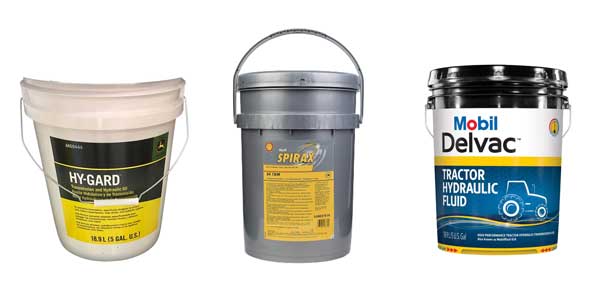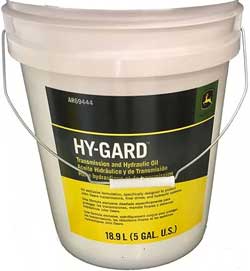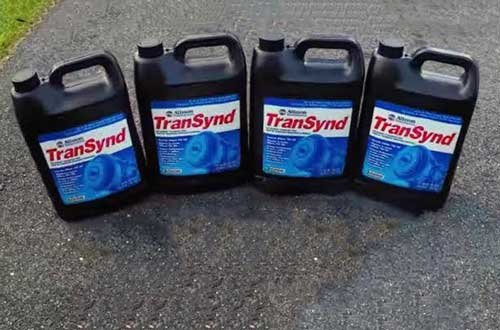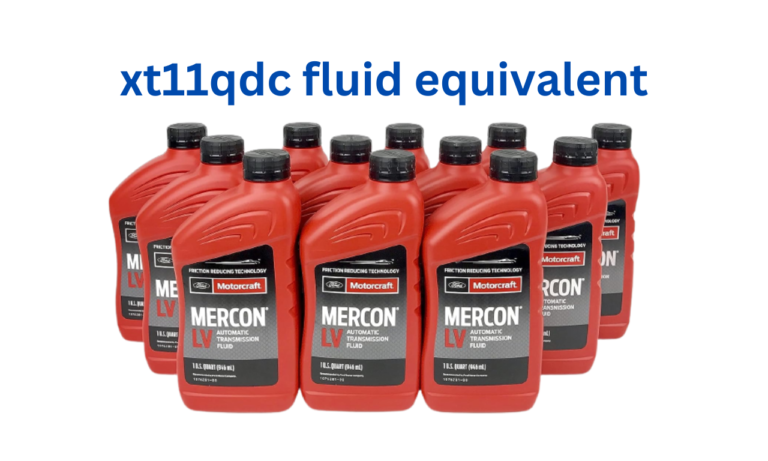Demystifying J20C Hydraulic Oil Equivalent: Finding the Right Fluid for Your Car

Finding the right equivalent is always difficult when it comes to J20C Hydraulic oil. But I am here to help you with your journey.
John Deere Hy-Gard is the gold standard when it comes to meeting the J20C specification for hydraulic and transmission fluids.
As the original equipment manufacturer (OEM) fluid, it’s tailor-made to ensure optimal performance and longevity.
Its exceptional formulation offers robust protection against wear, oxidation, and corrosion, even in demanding conditions.
Shell Spirax S4 TXM hydraulic fluid stands as a reliable J20C equivalent, offering excellent versatility for a wide range of cars.
Its advanced additive package ensures consistent protection against wear, rust, and foaming.
Whether in cold starts or high-temperature operations, Spirax S4 TXM maintains its stability and performance, delivering smooth hydraulic action and reliable transmission shifts.
Mobilfluid 424 is a well-regarded hydraulic and transmission fluid that aligns with the J20C specifications. It’s a go-to choice for various cars, providing exceptional protection and versatility.
Mobil’s advanced formula ensures reliable performance under heavy loads and fluctuating temperatures.
Factors to consider while choosing J20C Hydraulic Oil Equivalents
Choosing the appropriate J20C Hydraulic Oil equivalent for a car involves considering several critical factors to ensure the vehicle’s hydraulic and transmission systems operate effectively and efficiently.
Viscosity Ratings:
Viscosity is crucial for proper lubrication and smooth hydraulic system operation. Check the recommended viscosity grade specified by the manufacturer and ensure that the chosen J20C Hydraulic Oil equivalent matches this requirement.
Incorrect viscosity can lead to poor performance, excessive wear, and potential damage.
Additive Formulation:
Evaluate the additive package of the oil. Adequate anti-wear, anti-foaming, and corrosion-resistant additives are essential to protect vital components in the hydraulic and transmission systems.
Seal Compatibility:
Consider the compatibility of the chosen equivalent with the seals and gaskets used in your car’s hydraulic and transmission systems. Incompatible fluids can cause leaks and premature seal degradation.
Temperature Range:
Account for the temperature conditions in which your car operates. Choose an equivalent with a suitable viscosity index and temperature range to ensure proper fluid flow and lubrication in both cold starts and high-temperature conditions.
Certifications and Standards
Look for hydraulic oil equivalents that meet industry standards and certifications, such as J20C.
These certifications indicate that the fluid has been tested and approved to perform as expected.
Compatibility with Transmission Systems:
For cars with automatic transmissions, ensure that the chosen hydraulic oil equivalent is suitable for both the hydraulic system and the transmission system. Some fluids are designed to fulfill the requirements of both systems.
Also Read: Type A Transmission Fluid Equivalent
Importance of Choosing the Right Equivalent
Implications of Using Incorrect Hydraulic Oil:
Utilizing an inappropriate hydraulic oil equivalent can lead to a range of issues that negatively impact the overall performance of the car.
Incompatibility with seals and gaskets can cause leaks, leading to potential fluid loss and decreased efficiency.
Incorrect viscosity can result in inadequate lubrication, causing excessive wear on components and contributing to increased friction and heat generation.
Also Read: Dexron III Transmission Fluid Compatibility
Effects on Car Performance and Longevity:

The choice of hydraulic oil equivalent directly influences the performance and longevity of your car.
The wrong fluid can lead to poor hydraulic response, jerky transmission shifts, and reduced power transmission efficiency.
Risk of Voiding Warranties and Maintenance Costs:
Many car manufacturers specify the type of hydraulic oil to use in their vehicles, and deviating from these recommendations can have serious consequences.
Using an unapproved hydraulic oil might void warranties, leaving you responsible for repair costs in case of breakdowns or failures.
Also Read: Honda Gn4 Oil Equivalent
Benefits of using a high-quality hydraulic oil equivalent

Why Switch To J20C Hydraulic Oil Equivalent?
Using a high-quality hydraulic oil equivalent in your car offers a multitude of benefits that contribute to improved performance, longevity, and overall driving experience.
Enhanced Lubrication:
High-quality hydraulic oil equivalents are formulated with precision to offer superior lubrication properties.
This results in reduced friction and wear among various hydraulic and transmission components, ensuring smoother operation and minimizing heat buildup.
Optimal System Performance:
Premium hydraulic oil equivalents maintain consistent viscosity across a range of temperatures, ensuring proper fluid flow in both cold starts and high-temperature conditions.
This consistency leads to smooth shifts, improved hydraulic response, and reliable power transmission.
Reduced Wear and Tear:
Quality hydraulic oil equivalents contain effective anti-wear additives that protect components from friction-related damage.
By minimizing wear and tear on critical parts, these fluids extend the lifespan of your car’s hydraulic and transmission systems.
Corrosion Prevention:
High-quality equivalents come with corrosion inhibitors that shield metal surfaces from rust and oxidation.
This protection is vital for preventing the degradation of hydraulic components and maintaining the overall integrity of the system.
Improved Fuel Efficiency:

Proper lubrication and reduced friction within the hydraulic and transmission systems can lead to improved fuel efficiency.
The reduced energy loss from minimized friction results in better power transfer and less strain on the engine.
Smooth Transmission Shifts:
Premium hydraulic oil equivalents contribute to smoother gear shifts, both in automatic and manual transmissions.
This ensures a seamless driving experience, eliminating the jerking or hesitation that can result from inadequate lubrication.
Minimized Maintenance Costs:
Using a high-quality equivalent reduces the need for frequent maintenance and repairs.
By keeping your hydraulic and transmission systems in optimal condition, you can avoid costly breakdowns and extensive servicing.
Read More About: Toyota Type T IV ATF Equivalent
Advantages Of J20C Hydraulic Oil Equivalent
- J20c hydraulic oil equivalent offers numerous advantages for machinery.
- It improves performance and efficiency, leading to enhanced equipment protection and durability.
- By using j20c hydraulic oil equivalent, you can expect your machinery to function optimally and last longer. Additionally, this hydraulic oil alternative provides significant cost-saving benefits.
- It helps reduce maintenance and repair costs while maximizing the productivity of your equipment. With j20c hydraulic oil equivalent, you can ensure that your machinery operates smoothly and efficiently, saving you both time and money.
Also Read: Tes 389 Transmission Fluid Equivalent
Frequently Asked Questions On J20C Hydraulic Oil Equivalent
1. What Is J20C Hydraulic Oil?
J20C hydraulic oil is a specialized fluid used in agricultural and construction machinery for optimal performance in hydraulic systems and transmissions.
2. What hydraulic oil is equivalent to J20C?
Equivalent options to J20C include Shell Spirax S4 TXM, Mobilfluid 424, Valvoline Unitrac Hydraulic Fluid, and Chevron 1000 THF.
3. Can you mix J20D and J20C hydraulic oils?
Mixing different hydraulic oils, like J20D and J20C, is not recommended due to potential differences in additives and performance characteristics.
4. What weight is J20 hydraulic fluid?
J20 hydraulic fluid isn’t specified by weight; it’s categorized by viscosity grades (e.g., ISO VG 32, ISO VG 46) suitable for hydraulic systems in machinery.
5. Is J20C Hydraulic Oil Equivalent To J20A?
No, j20c hydraulic oil is not equivalent to j20a. While both oils are designed for use in agricultural machinery, j20c has improved performance and additional additives that make it suitable for a wider range of operating conditions.
6. What Are The Benefits Of Using J20C Hydraulic Oil?
Using j20c hydraulic oil offers several benefits, including improved equipment performance, enhanced wear protection, extended equipment life, and better fuel efficiency.
It also provides excellent oxidation and thermal stability, ensuring consistent performance in various weather conditions.
Conclusion
As we’ve journeyed through this exploration, it’s clear that the selection of the right fluid is crucial for maintaining the health and performance of your car’s hydraulic and transmission systems.
While navigating the landscape of J20C Hydraulic Oil equivalents, it’s essential to consider critical factors.
Viscosity ratings, additive formulations, seal compatibility, temperature ranges, and industry standards all play a pivotal role in selecting the right fluid for your car.
These considerations ensure smooth shifts, efficient operation, and a prolonged lifespan for your hydraulic and transmission systems.







